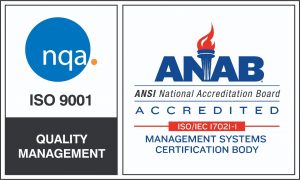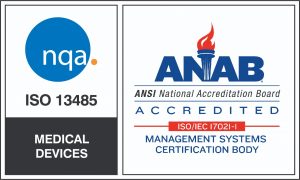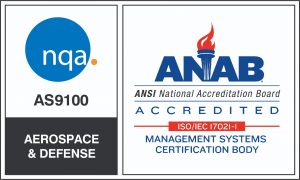 When creating devices for the medical industry, it’s crucial that manufacturers take care to ensure the quality, consistency, and reliability of every part produced. This isn’t just important for consumer satisfaction, it’s crucial for the health and safety of those that use these important devices.
When creating devices for the medical industry, it’s crucial that manufacturers take care to ensure the quality, consistency, and reliability of every part produced. This isn’t just important for consumer satisfaction, it’s crucial for the health and safety of those that use these important devices.
Medical devices are regulated by the Food and Drug Administration (FDA). In order to prove compliance, medical device manufacturers must meet the standards for the safety and essential performance of medical electrical equipment.
The internationally recognized standard, IEC 60601, was first published in 1977. Since that time, the standard has been updated and restructured several times. The most recent update to IEC 60601-1 was published earlier this year and includes several changes and clarifications. It’s important that medical device manufacturers learn and understand these changes to ensure compliance.
The most recent amendment, A2:2019, will mark the standard for medical devices for the next few years. The next change is not expected until 2024.
Important Changes to IEC 60601-1
While some of the changes to IEC 60601-1 seem minor, they could result in previously certified devices not meeting the new requirements for compliance. It’s crucial that medical device manufacturers take some time to make themselves familiar with A2:2019.
IEC 60601-1 A2:2019, also known as Version 3.2, includes 78 changes. The most important changes are listed below.
- IEC 60601-1 A2:2019 updates out-of-date references to ISO 14971 and IEC 62304
- Amendment 2 includes important changes that align IEC 60950-1: A2 and IEC 62368-1 in regards to safety requirements for audio/video, information, and communications technology
- A2:2019 includes error rectification and clarifications
- The Amendment includes changes affecting the design and layout of medical devices
- The Amendment also includes changes to standards for labelling, electrical hazards, mechanical hazards, thermal hazards, hazardous situations and fault conditions, and ME systems.
It’s important to note that these changes apply to both manufacturers and those responsible for testing medical devices and medical device components. Testers can only accept components that comply with IEC 60950-1 until December 20th, 2020. After this date, in stock medical devices and components can no longer be used.
Medical Device Contract Manufacturing Services
Working with an experienced contract manufacturer can help ensure compliance with FDA requirements. An experienced CM has the tools, experience, and technology needed to keep up with changing regulations.
Means Engineering offers contract manufacturing services to OEMs and organizations in the medical industry. Please contact us for information about our services.
 Businesses today face tough competition. In addition to keeping up with technological advancements and improvements, businesses must bring new products to market faster. Organizations wishing to remain competitive need to continuously locate ways to reduce costs and production time. Businesses often find this extremely difficult, especially during periods of economic downturn.
Businesses today face tough competition. In addition to keeping up with technological advancements and improvements, businesses must bring new products to market faster. Organizations wishing to remain competitive need to continuously locate ways to reduce costs and production time. Businesses often find this extremely difficult, especially during periods of economic downturn. Contract manufacturing enables organizations to produce products without the large expense of machinery and technology or the operating costs associated with manufacturing. While contract manufacturing offers numerous benefits to companies across a wide range of industries, there are significant benefits for the medical equipment and device segment.
Contract manufacturing enables organizations to produce products without the large expense of machinery and technology or the operating costs associated with manufacturing. While contract manufacturing offers numerous benefits to companies across a wide range of industries, there are significant benefits for the medical equipment and device segment. While several options exist, companies often wonder where to start when looking for a contract manufacturer. Making the choice to outsource is an extremely important decision. It’s crucial that organizations take the time necessary to interview several companies.
While several options exist, companies often wonder where to start when looking for a contract manufacturer. Making the choice to outsource is an extremely important decision. It’s crucial that organizations take the time necessary to interview several companies. Companies looking to expand into new markets often face difficult decisions. While most of these organizations understand the benefits of expansion and the potential for increased revenue, many simply aren’t sure how to acquire the equipment, space, and people needed to grow their business. This is especially true for OEMs and other organizations looking to produce parts or products for the medical, defense, or aerospace industries. These industries have strict requirements, and organizations must prove that they have the equipment and skills needed to meet tight tolerances and produce extremely complex devices.
Companies looking to expand into new markets often face difficult decisions. While most of these organizations understand the benefits of expansion and the potential for increased revenue, many simply aren’t sure how to acquire the equipment, space, and people needed to grow their business. This is especially true for OEMs and other organizations looking to produce parts or products for the medical, defense, or aerospace industries. These industries have strict requirements, and organizations must prove that they have the equipment and skills needed to meet tight tolerances and produce extremely complex devices.

